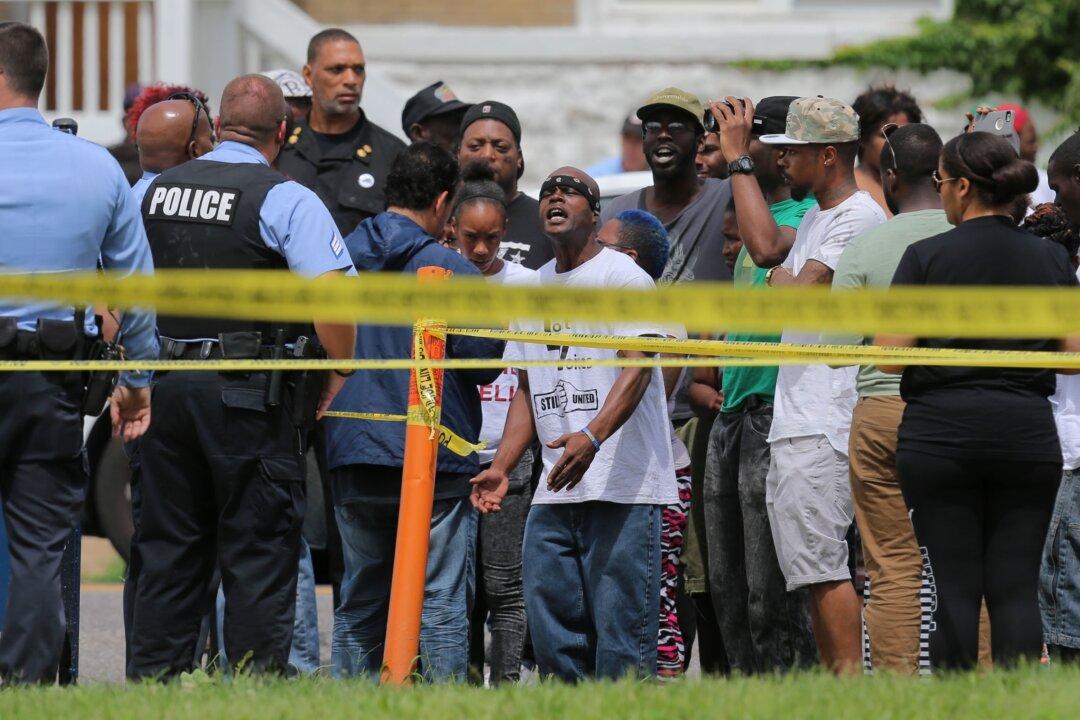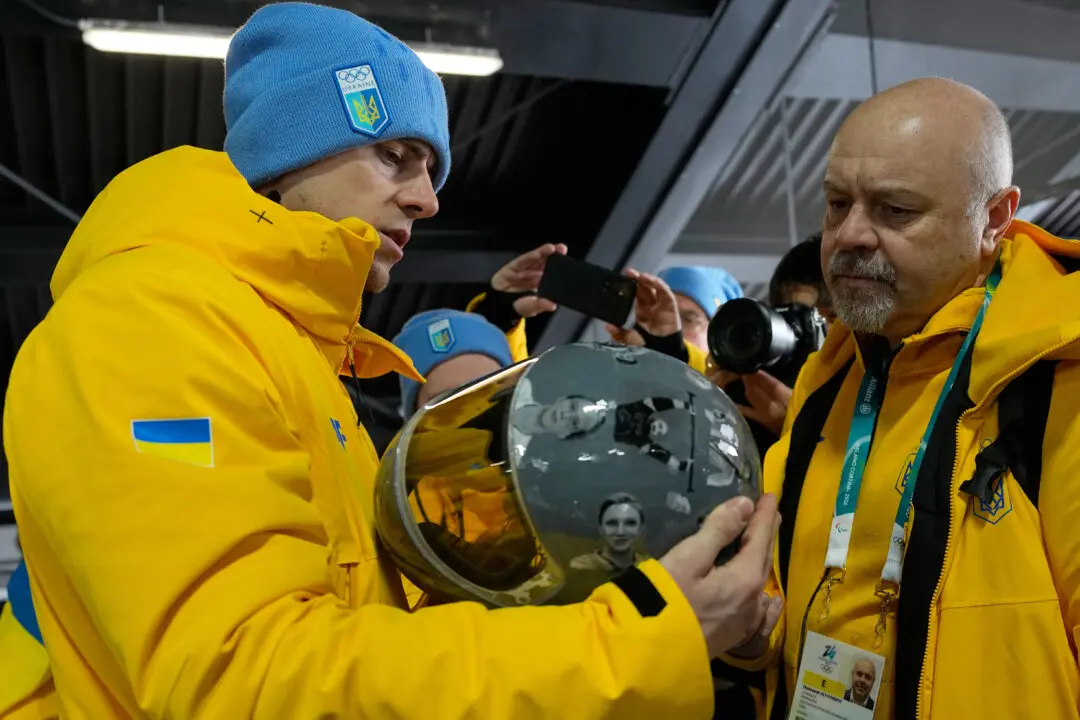ST. LOUIS—Officers arrested at least nine people and deployed tear gas amid protests in St. Louis over the death of a black 18-year-old who was fatally shot by police after he pointed a gun at them, the city’s police chief said.
Chief Sam Dotson said at a press conference late Wednesday night that a group of protesters who had blocked an intersection threw glass bottles and bricks at officers and refused orders to clear the roadway.





